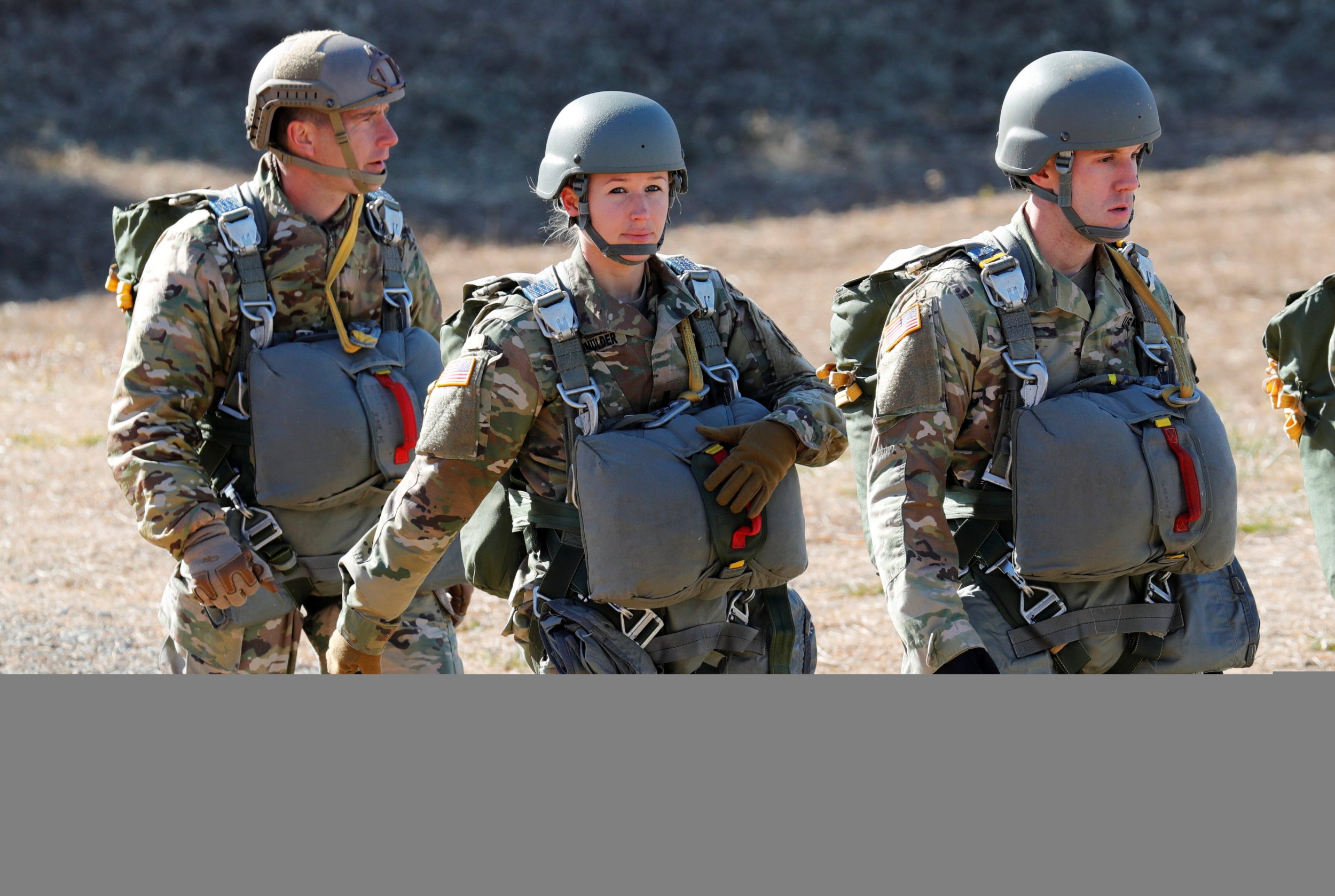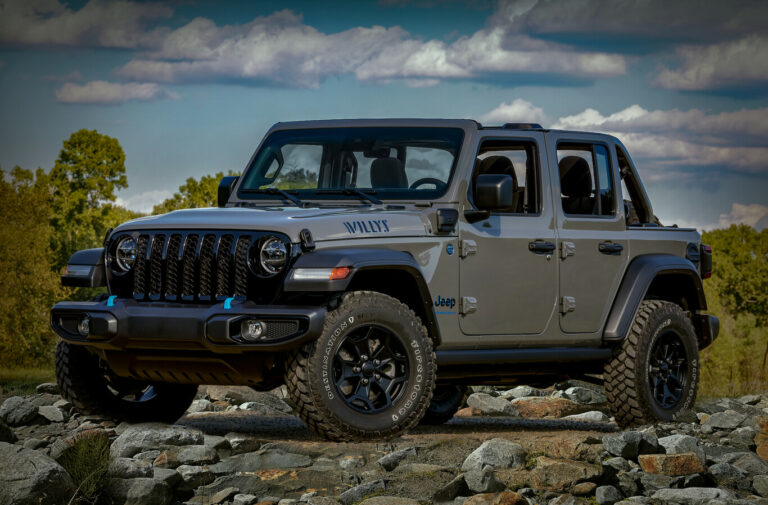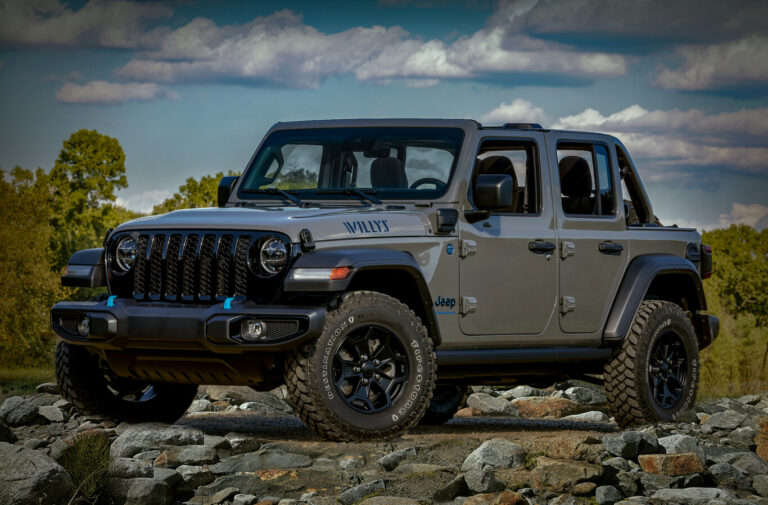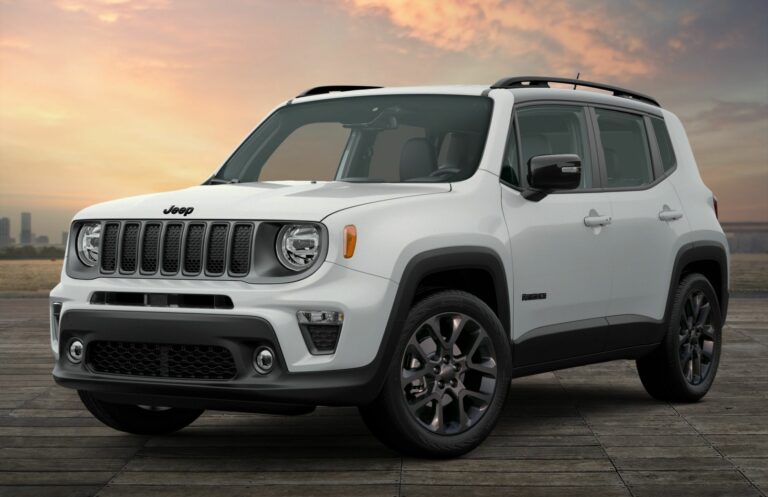Military 1/4 Ton Jeep Trailers For Sale: Your Ultimate Guide to Acquiring a Piece of History and Utility
Military 1/4 Ton Jeep Trailers For Sale: Your Ultimate Guide to Acquiring a Piece of History and Utility jeeps.truckstrend.com
In the world of vintage military vehicles and rugged utility, few items hold as much enduring appeal as the Military 1/4 Ton Jeep Trailer. These unassuming, yet incredibly robust, two-wheeled trailers served as the trusty companions to the iconic Willys MB and Ford GPW Jeeps during World War II, and continued their service through the Korean and Vietnam Wars with models like the M100 and M416. More than just a simple cargo carrier, these trailers represent a tangible piece of history, built with an unparalleled dedication to durability and functionality.
Today, the market for Military 1/4 Ton Jeep Trailers For Sale is vibrant, attracting a diverse range of buyers from military vehicle collectors and historical reenactors to off-road enthusiasts, campers, and those simply seeking a uniquely tough utility trailer. Their simple design, legendary resilience, and classic aesthetic make them highly sought after. This comprehensive guide will delve into everything you need to know about these remarkable trailers, helping you navigate the buying process, understand their value, and unlock their full potential.
Military 1/4 Ton Jeep Trailers For Sale: Your Ultimate Guide to Acquiring a Piece of History and Utility
I. A Glimpse into History: What Are Military 1/4 Ton Jeep Trailers?
The genesis of the 1/4-ton trailer is intertwined with the development of the Jeep itself. Designed to match the Jeep’s off-road capabilities and transport its payload, these trailers were initially produced by companies like Bantam, Willys-Overland, and Ford, starting with the MBT (Military Bantam Trailer) and T3-C during WWII. Post-war, improved designs emerged, most notably the M100 (used through the Korean War) and the M416 (prominent during the Vietnam era), both featuring enhanced suspension and construction for even greater ruggedness.
Key characteristics that define these trailers include:
- Rugged Steel Construction: Built to withstand the harshest combat conditions, they are virtually indestructible.
- Simple Leaf Spring Suspension: Designed for maximum articulation and durability over rough terrain.
- Matching Wheel Bolt Pattern: Often sharing the same 5-on-5.5" bolt pattern as vintage Jeeps, allowing for wheel interchangeability.
- Lunette Ring Hitch: A robust pintle hook compatible hitch, providing superior articulation for off-road towing compared to ball hitches.
- Compact Size: Their 1/4-ton capacity (approximately 500 lbs) makes them maneuverable yet capable.

These trailers weren’t just for cargo; they served as mobile command posts, radio units, generator platforms, and even improvised living quarters. Their legacy of versatility and reliability is why they remain so popular, making Military 1/4 Ton Jeep Trailers For Sale a constant presence in the vintage vehicle market.
II. Why Buy a Military 1/4 Ton Jeep Trailer? Benefits and Applications
The appeal of these trailers extends far beyond their historical significance. Their inherent qualities make them incredibly practical for modern use:

- Unmatched Durability and Reliability: Forget flimsy consumer-grade trailers. These units were engineered for war, meaning they can handle anything from hauling firewood to traversing remote trails without complaint. Their all-steel construction means they shrug off abuse that would destroy lesser trailers.
- Exceptional Versatility:
- Off-Road Adventures: Perfectly suited for overlanding, camping, and exploring challenging terrain, especially when paired with a Jeep or 4×4.
- Utility & Hauling: Ideal for yard work, farm tasks, or simply moving gear. Their low center of gravity makes them stable.
- Historical Preservation: For collectors, owning a period-correct trailer completes a vintage military vehicle display or restoration project.
- Unique Aesthetic: Their iconic look stands out, whether at a car show or a campground.

- Investment Potential: Well-maintained or restored examples often hold or even increase in value, making them more than just a utility purchase. They are a tangible asset.
- Ease of Maintenance: With minimal moving parts and robust construction, these trailers are incredibly simple to maintain. Most repairs can be done with basic tools, and parts are generally available.
The decision to look for Military 1/4 Ton Jeep Trailers For Sale is often driven by a desire for a trailer that can truly go anywhere and withstand anything, combined with an appreciation for robust, timeless design.
III. Navigating the Market: Where to Find Military 1/4 Ton Jeep Trailers For Sale
Finding your ideal 1/4-ton trailer requires knowing where to look. The market is diverse, offering options from rusty projects to fully restored showpieces.
- Online Marketplaces:
- eBay & Craigslist: Often the first stop for many, offering a wide range of conditions and prices. Be cautious of scams and always inspect in person if possible.
- Facebook Marketplace & Groups: Dedicated military vehicle groups and local buy/sell groups are excellent resources. You can often find knowledgeable sellers and buyers here.
- Dedicated Military Surplus Websites: Sites like GovPlanet (for government surplus auctions) and various military vehicle forums and classifieds (e.g., G503.com forums) are prime hunting grounds for authentic trailers.
- Specialized Dealers & Restorers: Several businesses specialize in vintage military vehicles and parts. They often have restored or ready-to-restore trailers, though prices will be higher due to expertise and labor involved.
- Auctions: Government surplus auctions, estate sales, and specialized military vehicle auctions can yield hidden gems. Be prepared to bid and inspect thoroughly beforehand.
- Word of Mouth & Clubs: Joining local or national military vehicle clubs (like the MVPA – Military Vehicle Preservation Association) can open doors to private sales and networking opportunities.
- Farm Sales & Rural Areas: Sometimes, these trailers turn up in unexpected places, having been used for decades on farms or properties.
When searching for Military 1/4 Ton Jeep Trailers For Sale, patience and persistence are key. The perfect trailer for your needs might not appear overnight, but with diligent searching, you’re likely to find it.
IV. What to Look For: Essential Considerations Before You Buy
Purchasing a vintage military trailer is an investment, and a thorough inspection is paramount. Here’s what to prioritize:
- Condition of the Frame: This is the most critical component. Look for severe rust, bends, cracks, or previous repairs. A solid frame is foundational; everything else can be fixed or replaced. Pay close attention to the tongue and pintle hitch area.
- Body Tub Integrity: Inspect the steel tub for rust-through, especially in the corners, floor, and where the tub meets the frame. Dents are common and often part of their character, but large holes or structural rust are red flags.
- Axle and Suspension: Check the leaf springs for cracks or sagging. Ensure the axle is straight and that the wheels spin freely. Bearing condition is important; listen for grinding or excessive play.
- Wheels and Tires: Verify the wheel bolt pattern matches your tow vehicle if you plan to interchange spares. Tires should hold air and have decent tread. Factor in the cost of new tires if they are old or cracked.
- Electrical System: Most older trailers will have outdated or non-functional wiring and lights. Assume you’ll need to upgrade to modern LED lights and a standard 4-pin or 7-pin connector for road safety.
- Hitch (Lunette Ring): Ensure the lunette ring is not excessively worn or damaged.
- Data Plates: Check for the original data plates, usually found on the frame or tub. These provide model numbers, serial numbers, and manufacturer details, crucial for authenticity and potential titling.
- Title and Registration: This is a major consideration. Many older military trailers were never titled for civilian use. Research your state/country’s requirements for titling a homemade or antique trailer. Some states are easier than others. A bill of sale is essential regardless.
- Originality vs. Modification: Decide if you want a historically accurate restoration project or a modified, ready-to-use utility trailer. This will influence what "issues" you’re willing to accept.
By meticulously inspecting these areas, you can make an informed decision and avoid costly surprises when looking at Military 1/4 Ton Jeep Trailers For Sale.
V. Restoration and Customization: Breathing New Life into Your Trailer
Once you’ve acquired your 1/4-ton trailer, the journey often begins with either basic maintenance or a full restoration. These trailers are perfect canvases for customization.
- Basic Maintenance & Safety Upgrades:
- Bearings: Repack wheel bearings with fresh grease. This is crucial for road safety.
- Tires: Replace old, cracked tires.
- Electrical: Upgrade to modern 12V LED lights and a standard wiring harness (4-pin flat or 7-pin round) for visibility and compliance. Add reflective tape or markers.
- Safety Chains: Ensure robust safety chains are present and securely attached.
- Rust Repair & Paint: Address any rust, from surface corrosion to holes. Sandblasting is ideal for a full restoration. Apply a durable primer and paint system, whether original Olive Drab or a custom color.
- Suspension Overhaul: Replace old leaf springs, shackles, and bushings for improved ride quality and capacity.
- Customizations for Utility & Overlanding:
- Lids/Covers: Add a custom hard lid or soft tonneau cover for secure, weather-resistant storage.
- Racks: Fabricate or install a roof rack for tents, kayaks, or additional gear.
- Interior Liners: Install a bed liner or protective coating for heavy-duty use.
- Matching: Paint your trailer to match your tow vehicle for a cohesive look.
- Camping Conversions: Many enthusiasts transform these into compact overland trailers with slide-out kitchens, rooftop tents, and integrated storage.
The beauty of these trailers is their adaptability. Whether you aim for historical accuracy or a modern adventure rig, the robust foundation of a Military 1/4 Ton Jeep Trailer For Sale provides endless possibilities.
VI. Important Tips for a Smooth Purchase
To ensure a positive experience when acquiring your military trailer:
- Set a Realistic Budget: Factor in not just the purchase price, but also potential costs for transportation, registration, and immediate repairs/upgrades.
- Inspect In-Person (If Possible): Pictures can be deceiving. If you can’t inspect it yourself, have a trusted friend or professional do it.
- Ask for Documentation: Request photos of data plates, a clear bill of sale, and any existing title documents.
- Verify Seller Credibility: Check reviews or ask for references if buying from an individual or small dealer.
- Arrange Transport: If the trailer isn’t road-ready, plan for a flatbed tow. Even if it is, consider the distance and your tow vehicle’s capacity.
- Join the Community: Online forums (like G503.com) and local military vehicle clubs are invaluable resources for advice, parts, and connections. They can often help identify genuine deals for Military 1/4 Ton Jeep Trailers For Sale.
Military 1/4 Ton Jeep Trailers For Sale: Price Guide
The price of Military 1/4 Ton Jeep Trailers For Sale varies significantly based on condition, originality, model, and location. Here’s a general guide:
| Condition Category | Description | Estimated Price Range (USD) | Key Considerations |
|---|---|---|---|
| Basket Case/Parts | Heavily rusted, significant structural damage, major components (axle, wheels, hitch) missing or seized. Non-rolling. Suitable only for parts donor or a complete, ground-up professional restoration. | $300 – $800 | High restoration cost, requires extensive metalwork and parts sourcing. Only for experienced restorers. |
| Rough/Project | Rolling chassis with intact but rusty tub. Needs new tires, full electrical overhaul, significant rust repair, and a complete repaint. May have minor bends or missing non-structural components. | $800 – $1,500 | Functional but requires substantial mechanical and cosmetic work. Good for DIY enthusiasts willing to invest time. |
| Good Condition | Solid frame and tub with minimal rust. Lights may need minor repair or upgrade, but overall functional and towable. Tires may be old but hold air. Paint is faded but present. | $1,500 – $3,000 | Ready for immediate light use or a straightforward restoration. Represents good value for a usable trailer. |
| Restored/Excellent | Professionally restored to original military specifications, or meticulously customized for overland/utility use. Road-ready with updated electrical, good tires, and often a title. Show quality. | $3,000 – $6,000+ | Premium price for a turn-key solution. Often includes modern safety upgrades. May be a historical showpiece. |
Note: Prices can fluctuate based on market demand, rarity of specific models (e.g., WWII-era Bantams often command higher prices), and geographical location.
Frequently Asked Questions (FAQ) about Military 1/4 Ton Jeep Trailers For Sale
Q: Do these trailers come with a title?
A: Many older military surplus trailers were never issued civilian titles. It varies greatly by state/country. Some states allow titling as a "homemade" or "antique" trailer with a bill of sale. Always check your local Department of Motor Vehicles (DMV) regulations before purchase.
Q: Are Military 1/4 Ton Jeep Trailers road legal?
A: Generally, yes, with proper lighting and registration. Most states require functional taillights, brake lights, turn signals, and often reflective markers. The original 6-volt military lighting system will need to be upgraded to modern 12-volt LED lights and a standard civilian wiring harness.
Q: What’s the difference between an M100 and an M416?
A: Both are 1/4-ton trailers. The M100 (Korean War era) typically has a slightly more rounded tub and a different suspension setup. The M416 (Vietnam era) is generally more square-bodied with a simpler, more robust leaf spring suspension. The M416 is often considered more desirable for off-road use due to its suspension and commonality of parts.
Q: Can I tow a Military 1/4 Ton Jeep Trailer with a modern vehicle?
A: Yes, absolutely. You will need a pintle hitch receiver (which replaces a standard ball hitch receiver) on your tow vehicle. Ensure your vehicle’s towing capacity exceeds the trailer’s Gross Vehicle Weight Rating (GVWR) of around 1,000-1,200 lbs when loaded.
Q: Where can I find parts for these trailers?
A: Parts are readily available from specialized military surplus dealers, online military vehicle parts retailers, and fellow enthusiasts in forums and clubs. Many components like bearings, lights, and wiring are standard automotive parts.
Q: How much can a 1/4 Ton Jeep Trailer actually carry?
A: The "1/4 ton" designation refers to its rated payload capacity, which is approximately 500 pounds (227 kg). While they are built extremely tough and might handle more, it’s best to stick to the rated capacity to ensure safety and longevity.
Q: Are they good for off-roading or overlanding?
A: They are excellent for off-roading and overlanding. Their robust construction, high ground clearance, and pintle hitch allow them to follow a 4×4 through very challenging terrain. Many are customized with larger tires, racks, and rooftop tents for dedicated adventure setups.
Conclusion
The pursuit of Military 1/4 Ton Jeep Trailers For Sale is more than just a transaction; it’s an entry into a world of history, utility, and community. These trailers are a testament to robust engineering, built to endure and serve. Whether you envision it as a historical artifact meticulously restored to its original glory, a rugged companion for your off-road escapades, or a reliable workhorse for everyday tasks, a 1/4-ton military trailer offers unparalleled value and character.
By understanding their history, knowing where to look, what to inspect, and how to maintain or customize them, you’re well-equipped to make an informed decision. Owning one of these iconic trailers is not just about acquiring a piece of equipment; it’s about connecting with a legacy of resilience and embarking on new adventures, one durable, historical mile at a time.







